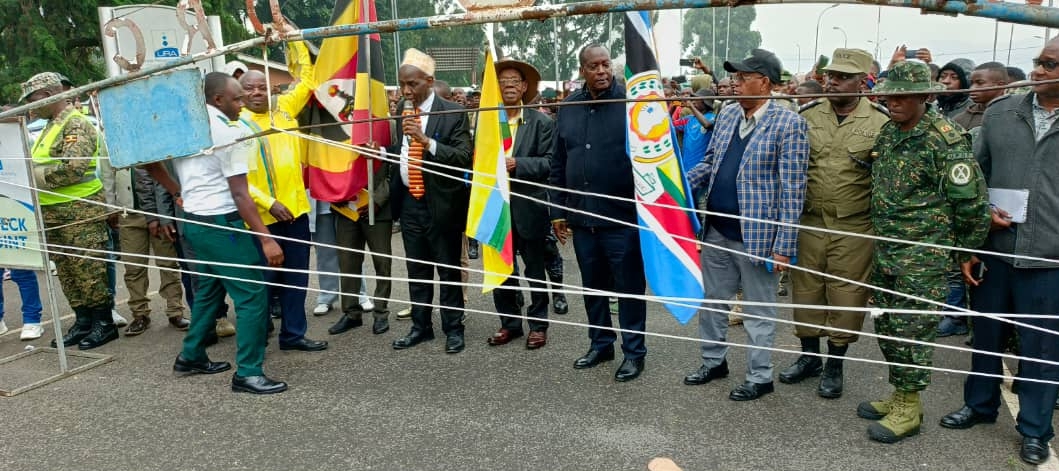Uganda reopens Bunagana border post despite rebel occupation, sparking outrage in DRC

Uganda has unilaterally reopened the Bunagana land border post with the Democratic Republic of Congo (DRC), reigniting tensions over the strategic crossing which remains under the control of the M23 rebel movement.
On Thursday, July 10, Ugandan authorities formally reopened the border, allowing a steady flow of trucks and private vehicles to resume trade activities.
However, the move has sparked controversy, as no Congolese government officials were present at the reopening and the area on the DRC side remains occupied by the M23, now part of the Congolese opposition platform known as AFC (Alliance Fleuve Congo).
Eyewitnesses at the scene reported a quiet but clear lifting of barriers in the early hours, with minimal security presence and no formal ceremony.
The decision appeared to have been orchestrated without any consultation with Kinshasa, a move critics describe as undermining Congolese sovereignty.
AFC/M23 officials quickly took to social media, thanking Ugandan President Yoweri Museveni for what they called “a courageous step toward economic normalization.”
The group praised Uganda for reopening “all border posts” between the two countries, presenting it as a diplomatic victory.
The Bunagana crossing, located between Uganda’s Kisoro District and Rutshuru Territory in North Kivu, had been closed since June 2022 when M23 rebels seized control of the area during a renewed offensive.
Since then, Kinshasa has accused both Rwanda and Uganda of supporting the rebels—allegations both governments deny.
The surprise reopening raises pressing questions about regional cooperation, the role of armed groups in transboundary affairs, and the future of peace efforts in eastern DRC.
Analysts warn that facilitating trade through a rebel-controlled zone could further legitimize M23’s grip on territory and complicate diplomatic resolutions.
The Congolese government has yet to issue an official response, though sources in Kinshasa have described the move as “provocative” and “deeply troubling” given the fragile state of ongoing peace negotiations.
As regional tensions simmer, the Bunagana development underscores the complex nexus of security, diplomacy, and trade in the Great Lakes region—where rebel politics and state interests increasingly overlap.
About The Author
dailymailafric
I am an avid African news observer, and an active member of Daily Mail Africa.
I’m Passionate about staying informed on diverse topics across the continent,
I actively contribute to publishing on political, economic and cultural developments in Africa.



